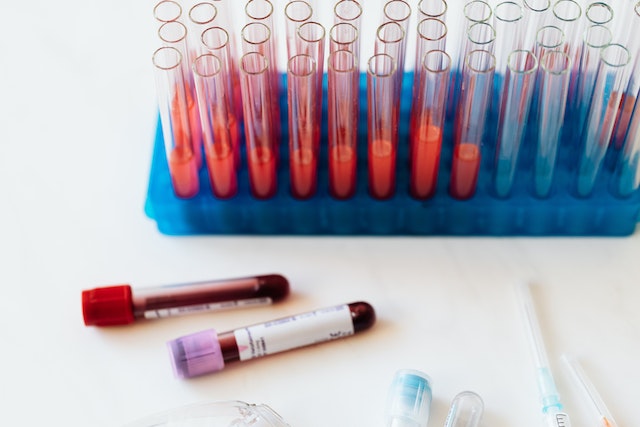
How would a cure for cancer work? It would teach the immune system to attack the cancer cells.
All of the cells in our bodies reproduce to make more copies of themselves and they are all programmed to last for a certain length of time. Cells have a preprogrammed signal that causes them to die when they reach a certain age. When they die, they are removed by phagocytes, white blood cells, and their energy is recycled. Each cell makes enough copies to sustain whatever it is a cell of before it dies and is removed. Sometimes mutations occur when cells reproduce. These mutations are caught, and the cells are also destroyed by the white blood cells. However, sometimes a mutation happens, and it isn’t caught by the white blood cells. If the mutation just makes the cell inactive, then no harm is done, but if the mutation turns off the cell’s preprogrammed kill signal, this can cause problems. Cells that don’t die can grow and pass on their mutation, causing tumors. This is cancer. Then, pieces of the tumor can break off, spreading to other parts of the body and spreading the mutation. This is how cancer kills.
Why can’t the body stop these cells? These cells are part of the body, and they can grow in the same way as other cells. They can get a blood supply, giving them oxygen and nutrients. And, because they are normal cells, they carry the same antigens as all other cells, which means the white blood cells can’t see them and don’t attack them. Whenever a foreign organism enters our body, it has antigens, which are proteins that stick to the surface of each cell. Our white blood cells have a memory of all the antigens that are in our body, and if these antigens are not recognized, it will attack them. This means they don’t attack cancer cells. The cancer cells can also produce a protein which deactivates the white blood cells and stops them going after the mutated cells, in the way that they normally would.
How can we treat cancer? Current methods aim at trying to kill these cancerous cells, but it is very difficult to target only the cancer cells without killing many of the cells around it. It is also difficult to get all of the cancer cells and if a few are left, the cancer can start to grow again. Cancer survival rates increase year by year, but more cancers are discovered every year, which offsets any gains in survival rates.
So, how would a cure for cancer work? There are three main areas that are being worked on at the moment and all of them are aimed at using the body’s immune system to destroy the cancer.
The first method involves forcing the cancer cells to produce an antigen that the immune system would attack. Doctors would take a biopsy of the cancer and AI would compare it to the person’s regular cells and work out what the mutation that the cell has. A vaccine would then be created to target only the cells with that mutation. The vaccine would tell the cells to start producing an antigen that the immune system hasn’t seen and the white blood cells would attack the cancer cells. Every type of cancer is different and every person has a different mutation. It would take a powerful AI to analyze it and work out the mutation and then tailor a vaccine, but it could be possible in the near future.
The second method would edit the white blood cells to attack the cancer cells. The cancer cells have a molecular difference from other cells and the white blood cells would be engineered to attack these cells only.
The third method also uses gene editing to change the white blood cells known as T cells to attack the cancer cells. Cancer cells can use a protein called PD-1 to hide from white blood cells. T cells would be removed from the body, edited to stop them reacting to PD-1 and then put back into the body. The edited white blood cells would not react to PD-1 and would attack all the cells with mutations.
All of these areas of research are becoming more possible than they were, but they all have an enormous price tag because the individual cancer has to be analyzed and a vaccine tailormade. It can cost hundreds of thousands of dollars per person. However, as the power of AI increases, this price will come down. Perhaps more research money could be funneled from other areas where it is less needed (the military, for example) and poured into this field of research. The benefits would be far more valuable to society. And this is what I learned today.
Photo by Karolina Grabowska: https://www.pexels.com/photo/set-of-vials-and-test-tube-of-blood-4226912/
Sources
https://www.bbc.com/news/health-51182451
https://www.cancer.org/treatment/understanding-your-diagnosis/can-cancer-be-cured.html
https://moffitt.org/endeavor/archive/new-cure-for-cancer/
https://ec.europa.eu/research-and-innovation/en/horizon-magazine/will-we-ever-cure-cancer
https://www.cancer.gov/about-cancer/understanding/what-is-cancer
https://www.sciencefocus.com/the-human-body/what-happens-to-cells-in-our-bodies-when-they-die/
https://www.ncbi.nlm.nih.gov/books/NBK27104/
https://www.bmhsc.org/blog/your-immune-system-and-cancer-whats-the-connection
